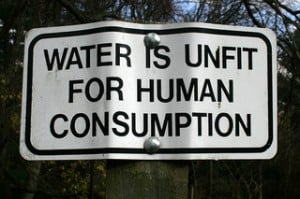Have you seen this advertisement for the non-profit Water is Life? Either way, take a quick look.
What is your emotion afterwards? I’ve watched it a few times. First, I thought nasty thoughts about people who can’t remember their maid’s name. A little class warfare bubbled up inside of me, and I started resenting people who get angry over the length of their iPhone cord.
Watching it again, though, I started to resent what I could see as the ad’s implicit “white man’s burden” message. The juxtaposition of Haitian residents reading #firstworldproblem tweets is jarring, but seems a little patronizing. We see dark-skinned persons in stereotypical dilapidated conditions, reading stereotypically bourgeois-white sentiments. I could just imagine my Jamaican friend commenting, “Here comes Mighty Whitey to save us!”
Don’t get me wrong: Water is Life is doing the right thing by helping people obtain what Pope Benedict XVI has called an “unalienable right” and I applaud their efforts wholeheartedly. But there are interesting power dynamics at work. It seems that when we label a tweet with #firstworldproblems, we are automatically posturing ourselves as better off than another. In other words, we are materially so well off that my biggest issue is the number of pickles on my burger.
Yet when we mock the shallowness of those tweets, by extension we mock the tweeter, the guy who didn’t want the pickles in his hamburger. Again, a power dynamic is at work, with the Haitians and their supporters as being morally superior to the materially superior. What if the pickle guy with his resources encountered the poor and learned simplicity? What if the Haitian without access to drinking water had met someone who had the resources and ability to help bring clean water to her community? Frankly, one has what the other needs, and selfless giving from each side would bring about class reconciliation, not warfare.
Two mocks don’t make a right, but two broken groups do make #onehumancommunity, a human community that, in the beginning, God deemed “very good.”
